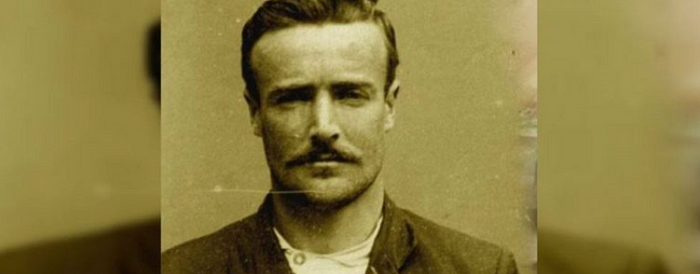# A Journey to the Year 3906: Paul Amadeus Dienach's Tale
Written on
Chapter 1: The Unlikely Time Traveler
Imagine a realm where individuals live with the innocence and joy of children, free from burdens and fears. Among the many intriguing narratives of time travel, few are as compelling as that of Paul Amadeus Dienach, a teacher from Switzerland whose life took a remarkable twist. This humble educator, grappling with chronic health issues, asserted that he journeyed to the year 3906, returning with revelations about a future world marked by both ruin and rejuvenation.
Section 1.1: A Life Changed by Illness
Paul Amadeus Dienach led an unremarkable life as a language teacher in Geneva until a rare illness, known as encephalitis lethargica, struck him down in 1921, plunging him into a coma that lasted over a year. Yet, this period of unconsciousness transformed into an extraordinary voyage into the future.
Prior to this life-altering event, Dienach was recognized for his intelligence, but his ongoing health struggles ultimately culminated in his coma. During this time, he claimed that his consciousness traveled to 3906, merging with a man named Andreas Northam.
Upon regaining consciousness, Dienach found the vibrant memories of his time-traveling adventure fresh in his mind. He carefully documented these experiences in a diary, portraying them not as dreams but as vivid accounts of a future vastly different from his own.
Section 1.2: Insights from the Future
Dienach's diary provides a detailed glimpse into the world of 3906, depicting a society that has overcome cataclysmic events and advanced technologically. According to his accounts, Earth endured numerous disasters, including wars and environmental crises, which reshaped civilization and the planet itself.
He described futuristic cities with towering skyscrapers and vehicles that defy gravity, painting a picture that feels akin to science fiction yet was claimed to be the reality of 3906. Dienach also mentioned a global governance structure, where a single entity oversees international affairs, indicating a unified political system that emerged after long-standing conflicts.
The future populace introduced him to the concept of a "consciousness shift," enabling individuals to traverse time and inhabit other bodies. The technological advancements he detailed surpassed anything known in the early 20th century, from holographic communication to rapid transportation. In this future, education and leisure were considered universal rights, eliminating the inequalities prevalent in Dienach’s era.
In this envisioned future, the society prioritized collective well-being over individual gain, fostering an environment where altruism thrived, allowing people to live as "carefree children, unburdened by worries or fears."
Dienach's writings also forecast pivotal future events, such as nuclear warfare, Mars colonization, and the establishment of a one-world government. He anticipated a "Dark Age" from 2000 to 2300, characterized by overpopulation and resource scarcity, which would eventually pave the way for a new Golden Age around 3400, where humanity could thrive in peace and prosperity.
Chapter 2: The Legacy of Dienach's Diary

The diary of Paul Amadeus Dienach stands as a remarkable historical artifact due to its extraordinary claims of time travel. Following Dienach's passing, his notes were entrusted to George Papahatzis, a dedicated scholar who undertook the task of translating the diary from German to Greek. This endeavor spanned a decade, amidst the chaos of World War II and the Greek Civil War.
Despite facing numerous challenges, including political obstacles and religious disputes, the diary was ultimately published as "Chronicles from the Future." Initially met with skepticism, it garnered a loyal audience among intellectuals, Masons, theosophists, and philosophy academics, who viewed it as a profound insight into humanity's potential future.
Years later, a senior figure within the Masonic Lodge republished the diary, making Dienach's experiences accessible to a new generation. This act of preservation underscored the diary's status as a unique and thought-provoking work of 20th-century literature.
The Future of Time Travel
Time travel has long intrigued humanity, from ancient myths to contemporary science fiction. Paul Amadeus Dienach's account adds a distinctive dimension to this fascination, prompting us to confront challenging questions about time, ethics, and global issues.
Tales like Dienach's compel us to reflect on our position within history and remind us that our actions today shape the future. Whether his journey to 3906 was genuine or not, his narrative serves as a thought-provoking testament to humanity's pursuit of knowledge and the enduring power of hope. As we contemplate the possibility of time travel, we must consider the impact of our choices and the legacy we aspire to leave behind.